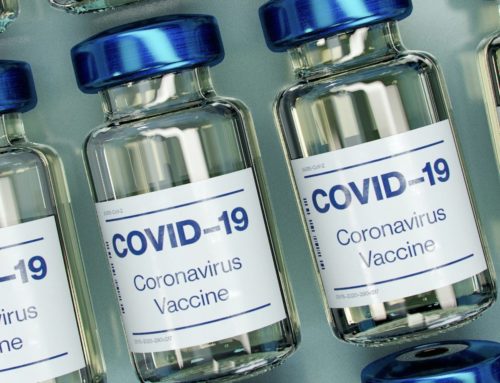The news about the Covid vaccine continues to dominate conversation and the news. What is clear is that we are on the back end in terms of our understanding about how effective this vaccine will be. The vaccine (depending on which one) ranges in efficacy from 76-95% and that is before it is released into a population. We still do not know: how many vaccines you might need (every 6 months, every year, every 18 months), how much it will protect us, does it prevent transmission of the virus, how it will cover variant virus types, and more.
What is important to remember is that even though this vaccine is rolling out in our communities, it is likely not going to be a magic eraser. The virus will likely stay with us for a long time to come. We will need to continue to manage our expectations about a return to normalcy, wear masks, socially distance and avoid large gatherings for several years ahead.
Also, keep in mind that once infected with the virus your immune response dictates your own outcome of the infection – that is, a healthy immune response will reduce serious disease presentation and an unhealthy immune response will lead to more severe consequences if you get Covid. While you are either waiting for your vaccine or for those of you who have already received it, the consistently important thing to remember is to continue to keep your health a priority. Eat well, take specific nutrients and herbs to help your immune system, sleep, minimize the things that we know lower immune function such as stress, sugar, alcohol and unhealthy foods.
Here are a few answers that we do know!
Is the Vaccine Free?
You should not have to pay anything to receive the vaccine.
Congress passed legislation in Spring 2020 that bars insurance companies from collecting co-payments or from applying to your deductible any cost related to getting the vaccine.
Details about how to qualify to get the vaccine are on the public health Colorado state website:
Colorado is currently vaccinating eligible Coloradans for Phase 1A, 1B.1, and 1B.2. Coloradans in Phase 1B.3 will be eligible beginning March 5. After all of Phase 1 is complete, we will proceed with Phase 2. https://covid19.colorado.gov/vaccine
Am I eligible to get the vaccine?
Currently 150 million people in the US are eligible to get vaccinated but priorities vary by state. In CO health care workers and residents of long term care facilities are prioritized. People 65 and older are also a prioritized health group to receive the vaccine. Go to the public health state website to determine your eligibility.
If you qualify now for the vaccine how do you sign up?
https://covid19.colorado.gov/for-coloradans/vaccine/where-can-i-get-vaccinated#providers
Have the first wave of health care workers and long term care residents been vaccinated yet?
Not entirely, health care workers have been vaccinated at slower rates than had been intended. Many states are reporting vaccine hesitancy among health care workers and staff members at nursing homes. A survey conducted at the Kaiser FamIly Foundation found that 29% of health care workers are reluctant to get the vaccine.
Can I choose which vaccine I get?
Not likely. The vaccine supply will often dictate which vaccine is available in your area.
Can I mix and match vaccine doses?
You will need to get the second dose by the same manufacturer as your first dose. If you got the Moderna vaccine, your second dose will also need to be Moderna. At the time of your first vaccine, you will get a card that indicates which vaccine you received. You will not be given a different vaccine than the one that is on your card. In some cases this is tracked by your phone- you will get a confirmation of your second dose and appointment time which allows for tracking doses and manufacturers. The CDC has said that doctors can mix and match vaccines in exceptional situations only— these include not having access to the vaccine you originally got or not remembering/losing your information for which vaccine you received first.
How will I demonstrate I received the vaccine?
After your second dose, you will receive a card that verifies time, date and which vaccine you received. (Take a photo of this with your phone for safe keeping).
How long until I am protected from Covid-19 after I get the vaccine?
Both Pfizer and Moderna vaccines reach 50% efficacy within 2 weeks of the first shot. It is estimated that you will get peak protection of approximately 95% a week after you receive the second dose according to studies done by both manufacturers.
What are the side effects and when will they be apparent?
No one knows for sure about long term effects from the vaccines, as long term safety data does not exist. Short term side effects include: sore arm, fatigue develops in 1/2 the patients, Headaches, chills muscle pain occur in 25%-33% of patients, uncontrolled shivering and brain fog have also been reported. Short term side effects show up between 1-3 days.
Can you get Covid-19 from the new vaccines?
No, because the vaccines do not contain any of the live viruses, weakened virus particles, dead virus, or any other infectious element. The vaccine contains a mRNA protein that is taken up by your cells and presented on the outer surface of your cells to help your immune system detect the specific protein that is seen in the coronavirus and to make antibodies to that protein, which is also seen in the virus. Also, the mRNA does not enter the nucleus of the cell, which is where our DNA is located; so, it cannot affect or interact with our DNA in any way.
Is the vaccine safe for women who are pregnant or breastfeeding?
The vaccines have not been tested in either of these populations. Consult with your obstetrician or pediatrician for more detailed information to make an informed choice. The WHO has shifted its previous stance on vaccinating pregnant and nursing mothers to say that “due to the type of vaccine this is, there is no reason to suspect that there is a higher risk to this population.” Eligibility for the vaccine if you are pregnant or nursing varies by state.
Will children be a priority for vaccines in order to get back into school?
Currently Pfizer’s vaccine is only available for children 16 years or older, Moderna’s vaccine is available for those 18 years or older. Children 12 or older are the next group of people in safety studies for the vaccines. They are studying if the effect of the vaccine is the same as the adult dose or if a different dose for children is required. Children have more active immune systems and may have stronger side effects than adults. The conclusion however has not been confirmed.
Does the vaccine work against the new variants of virus seen in the United Kingdom?
This is debated in the scientific literature. Initially, there was agreement that the current vaccines covered the variants and then more recently concern about the vaccine’s coverage of the variants has been expressed. All viruses mutate as a matter of natural course: some mutations do not increase the risk of viral spread, some mutations do not increase the potency of the virus, however, some mutations might change the way we respond to the vaccine. It is too early to know definitively.
Will a vaccine be required to travel?
Currently only proof of a negative covid test is required for travel across state lines and not all states are requiring this at this time. As of January 26, 2021 you will need to provide proof of a negative test before re-entering the US. In the future, it has been discussed that a vaccination passport- a document that confirms your vaccination status- will need to be in your possession but this is not required currently.
What is preventing everyone from having access to the vaccine if they want it?
The Biden Administration has been working to deliver and administer as many vaccines as possible, but leading up to January 20th, there were obstacles and issues with delivering vaccines to local agencies. There have been issues with weather that have held up distribution. By the Spring of 2021, there is optimism that vaccine distribution will be happening smoothly and that 75-80% of the population will be vaccinated.



